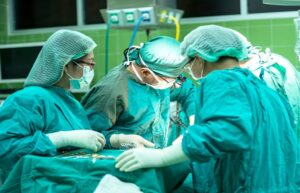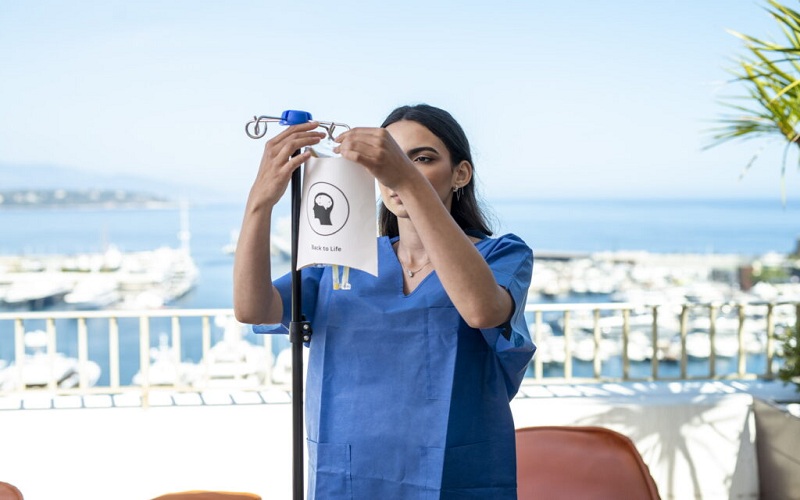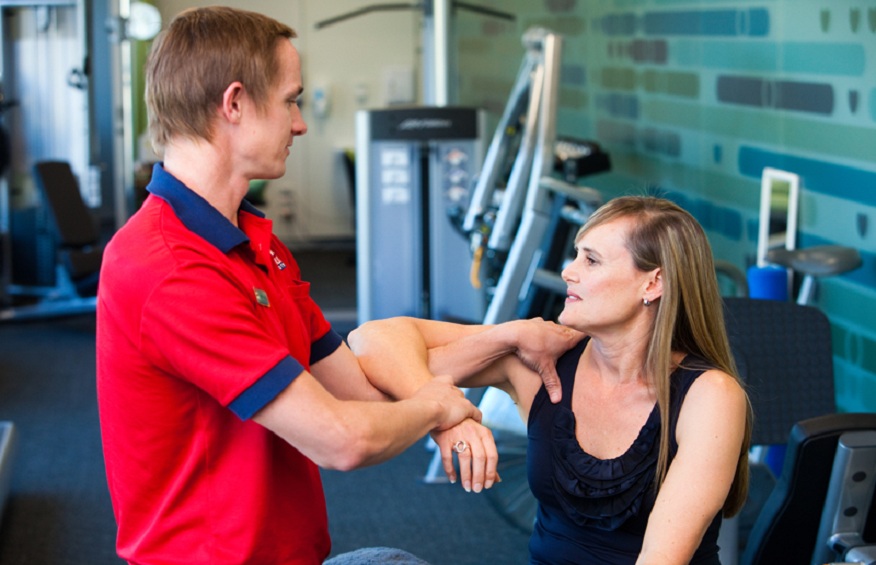The peri-operative nurse (ISO) takes care of the patient from his arrival in the operating theater to his exit from the recovery room. It plays an important role of support and comfort for patients subject to stress, psychological insecurity or hemodynamic (physical) instability. He is one of the guarantors of their safety throughout their time in the operating room.
The nurse in the operating room is called upon to exercise several roles alternately.
The circulating nurse prepares the surgical material necessary for the operation. He ensures compliance with the rules of hygiene and asepsis [1] as well as the proper use of equipment and instruments. He knows and respects the rules for administering the drugs used in the operating room as well as the specific procedures. He actively participates in the care and installation of patients. It is also he who manages the biological samples taken during the intervention. Wearing a non-sterile operating room outfit, he is also the relay between the surgical team and the external services.
The anesthesia nurse is responsible for the preparation and maintenance of anesthesia equipment. He assists the anesthetist during technical acts (intubation, placement of catheters and probes), collaborates in monitoring the biological constants of the patient during the operation and ensures his physical integrity. In the recovery room, he ensures the follow-up of the patient by a permanent watch and, thanks to his clinical judgement, he prevents possible complications and reacts to them appropriately.
The instrumental nurse is the guarantor of the sterility of the operating field. Before the intervention, he helps the surgeon to put on his sterile gown and gloves, prepares the instrumentation tables and counts the instruments, compresses and needles necessary for the intervention. During the operation, he presents the instruments the surgeon needs (scalpels, forceps, scissors, sutures, retractors, etc.) anticipating the surgical procedure. At the end of the intervention, he arranges, sorts and counts the instruments used and he notifies the problems and incidents that have occurred.
The operating nurse is generally positioned opposite the surgeon during the operation. He holds the retractors, he dries, vacuums, cuts the ligatures, etc. by anticipating the actions and requests of the surgeon. He helps the surgeon by suturing the operative wound.
The fields of action of the nurse in perioperative care are very broad since he must adapt to the different surgical specialties: cardiac, thoracic, digestive, orthopedic, ophthalmological, neurosurgery, maxillofacial and stomatology, ophthalmology, etc
Skills & Actions
Possess knowledge of nursing and biomedical sciences
Master hospital hygiene, asepsis, the various methods of disinfection and sterilizationKnow the methods of functional and architectural organization of an operating room
Prepare the operating room, equipment and instruments necessary for the intervention
Assist surgeons and anesthesiologists during surgery and anesthesia
Ensure patient safety before, during and after the procedure as well as in the recovery room
Write reports
Professional setting
The peri-operative care nurse is an integral part of a multidisciplinary team and works according to a variable schedule including call duty on weekends and nights.
He works in a restricted environment marked by a strict hygiene protocol (hand washing, sterile clothing, etc.). He must hold a prolonged standing position and lift or move patients.
In addition to the hospital environment, the nurse in perioperative care can also intervene in prevention, education and training in the field of health or work for pharmaceutical companies, participate in humanitarian or military missions.
Required conditions
Specialization in peri-operative care is not compulsory to work in an operating theatre, but it makes it possible to obtain a Special Professional Title (TPP) as a nurse specializing in peri-operative care issued by one of the Communities. This allows additional recognition of the skills acquired during the specialization year.
This specialization also grants the certificate in radiation protection and the BLS-AED diploma (Basic Life Support – Automated External Defibrillation) in cardiopulmonary resuscitation and use of an automatic defibrillator.
TPPs are granted for an indefinite period but their maintenance is subject to continuous training of at least 60 hours per period of 4 years. In addition, the nurse must justify that he has worked a minimum of 1,500 hours over the past 4 years with patients in preoperative consultation, in the operating room, in the recovery room or in outpatient surgery, or in highly specialized departments. for invasive, diagnostic and therapeutic interventions (Ministerial decree of March 26, 2014).




